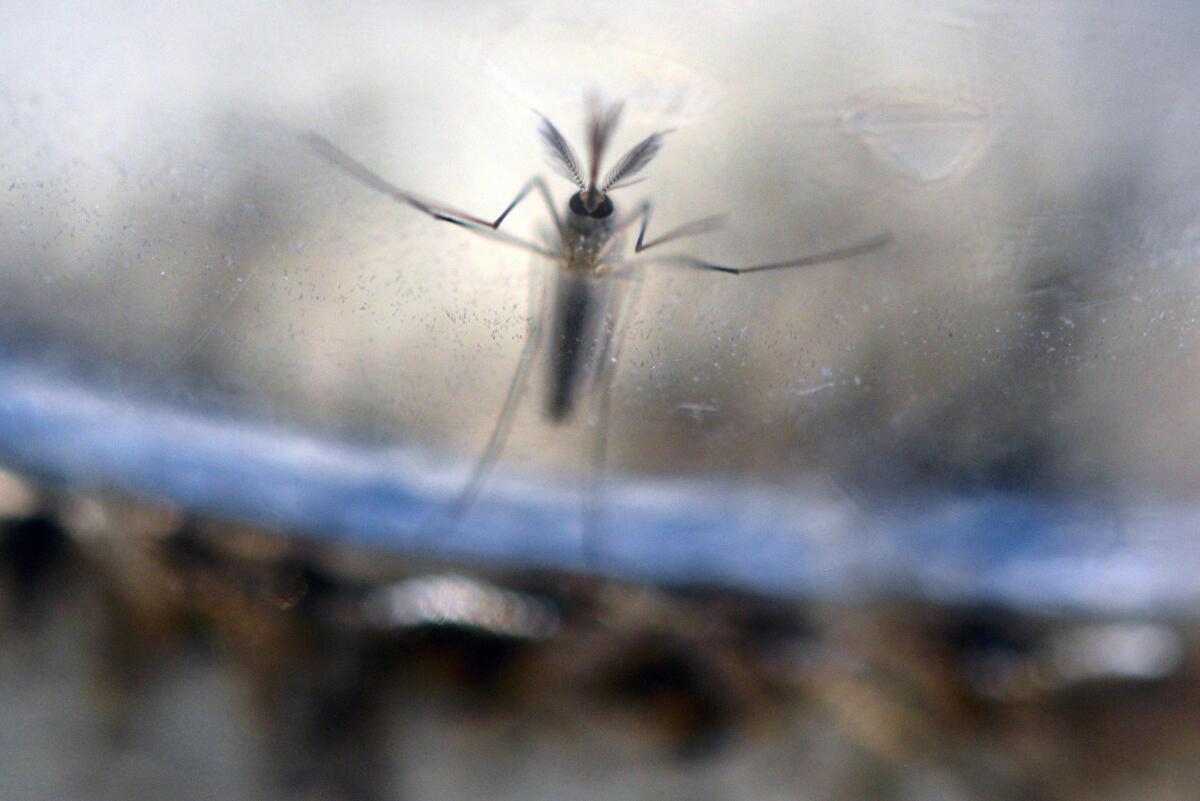New mosquito-borne virus Zika spreading in Caribbean

Mosquito larvae shown in a laboratory in El Salvador’s Ministry of Health. Health officials confirmed Wednesday that a person in Yolo County had contracted the virus while traveling abroad.
- Share via
PORT-AU-PRINCE, Haiti — The U.S. Centers for Disease Control and Prevention is warning pregnant woman and others to be aware when traveling to countries where a new mosquito-borne illness possibly linked to babies born with small, undeveloped brains in Brazil has appeared.
The travel alert came the same day that Haitian health officials confirmed that the Zika virus was present in the country.
“We’ve always said that once we are certain of something, we will say it,” Minister Florence Guillaume said at a news conference Friday. “We have scientifically confirmed that the illness ... everyone calls Zika is in Haiti.”
Hours later, the CDC, which was considering whether to warn pregnant women against travel to the region where Zika is present, issued its travel alert. The countries it warned about are: Brazil, Colombia, El Salvador, French Guiana, Guatemala, Haiti, Honduras, Martinique, Mexico, Panama, Paraguay, Suriname, Venezuela and the commonwealth of Puerto Rico. Caribbean health officials say the virus is also present in Guyana.
“Pregnant women who must travel to one of these areas should strictly follow steps to avoid mosquito bites during the trip,” the CDC said.
The health agency acknowledged that it’s difficult to determine specific areas where Zika virus transmission is ongoing.
For weeks, Haitians had suspected that the rare virus, which has been quickly spreading through South America, Central America and the Caribbean, was present in Haiti. But health officials had refused to confirm their suspicions that the flu-like symptoms of fever, red eyes and rashes were Zika.
Spread by the same Aedes aegypti mosquito that spreads dengue fever and chikungunya, Zika was first discovered in Uganda in 1947. But its spread from Africa and Southeast Asia had been rare, even though it usually follows an outbreak of chikungunya fever, which threatened the social and economic development of small island economies after it was first detected in the Western Hemisphere in December 2013.
Recalling chikungunya’s quick spread in the Caribbean last year, Dr. James Hospedales said he expects Zika to also quickly spread to other Caribbean islands. Hospedales is the executive director of the Trinidad-based Caribbean Public Health Agency, which confirmed Zika’s presence in Haiti after receiving blood samples from the health ministry.
In Brazil, health officials are studying whether the virus is linked to microcephaly, a condition in which children are born with damaged, smaller-than-normal brains. The number of cases has jumped dramatically since 2014, and the CDC says more research is needed to determine the relationship, but pregnant women should take precautions.
Miami Herald
More to Read
Sign up for Essential California
The most important California stories and recommendations in your inbox every morning.
You may occasionally receive promotional content from the Los Angeles Times.













